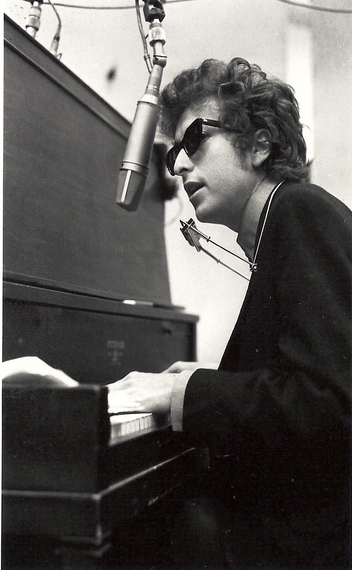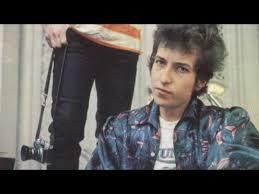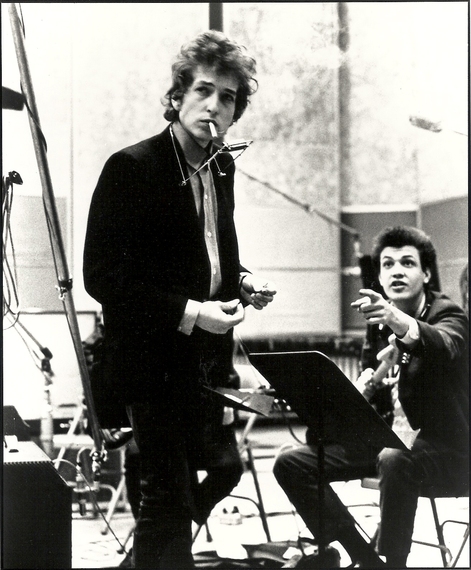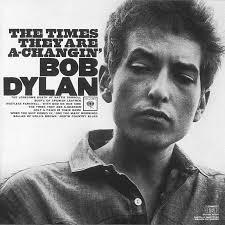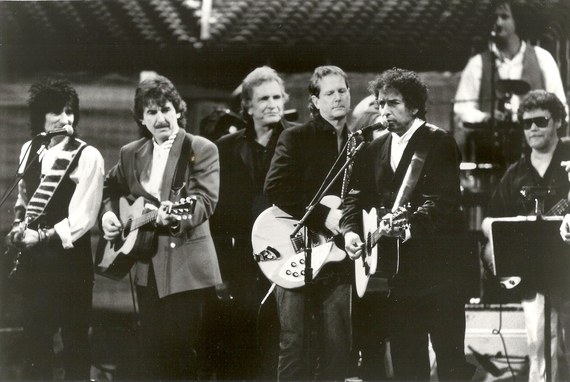When my wife woke me up this morning to tell me Bob Dylan had won the Nobel Prize for literature, my first thought was yeah, right, and Mallomars won the Nobel Prize for healthiest food.
But she was telling the truth, which was as wonderful as it was startling.
There's a live recording of Johnny Cash singing "Wanted Man," a song he cowrote with Dylan, where Cash introduces it by saying, "I don't have to tell you who Bob Dylan is. He's the greatest writer of our time."
Not songwriter. Writer.
Nice that the Nobel folks see him the same way.
Personally, I have to confess that I couldn't name the last eight winners of the Nobel Prize for Literature if they were outside my door selling postcards of the hanging.
I also confess that I'm among the majority of people everywhere who enjoy complaining that various groups, organizations, committees and panels often screw up when they select honorees.
This time, I got no complaints. When something's not wrong, it's right.
Okay, there may still be a random dissenter or two out there, reflecting the fact that 54 years after his first record came out, Dylan arguably remains an acquired taste.
Perhaps that's in part because his writing over the years has often run to passages like "Johnny's in the basement / Mixing up the medicine / I'm on the pavement / Thinking 'bout the government" or "For Halloween buy her a trumpet / And for Christmas give her a drum" or "The cracked bells and washed-out horns / Blow into my face with scorn."
Especially in his early days, the songs could sound as if they'd been deliberately teed up for parody, like the one Christopher Guest did for National Lampoon where his faux Dylan plugs a quickie compilation record called Golden Protest.
But parody and satire come with the turf, and Dylan enjoys doing it himself, from his "Ode to Billy Joe"-inspired "Clothesline Saga" to his bemused Bruce Springsteen tribute "Tweeter and the Monkey Man."
More to the point, Dylan (above with Mike Bloomfield) proved long ago that he doesn't just string random rhythmic words together. The more you listen, the more you realize that even the weirdest combinations, in his hands, make sense.
He has also written hundreds of straightforward lines that are just dead spot-on perfect, capturing a thought poetically and uniquely without wasting a syllable or a beat.
Reciting those lines by themselves, outside the context of his other music or even the rest of these particular songs, can sound as trite as grabbing excerpts from his more fanciful images. But there they are anyway.
"You just kind of wasted my precious time / Don't think twice, it's all right."
"More frailer than the flowers / These precious hours."
"The moral of this story, the moral of this song / Is one should never try to be / Where one does not belong."
"My love she speaks like silence / Without ideals or violence / She doesn't have to say she's faithful / Yet she's true like ice, like fire."
"Tolling for the warriors / Whose strength is not to fight."
How about "So many things that we never will undo / I know you're sorry, I'm sorry too."
That's even without getting into early songs like "When the Ship Comes In" or "Blowing in the Wind," which got him briefly labeled as a protest singer even though his vision was always far wider and he shed the "protest" label the same way he would shed every other label anyone ever tried to hang on him.
At one 1960s press conference, someone said okay, if you're not a protest singer or a folk-rocker or whatever, what are you?
"A song and dance man," he replied, and while he wasn't highly committed to the truth when speaking with the media in those days, that answer was as good as any other.
He's a song and dance man in the sense that he mostly speaks through song and he does it just the way the old vaudeville entertainers - the real song-and-dance men and women, the ones carrying on a tradition that stretches back for millenia - used to do it.
He finds something people want to see or hear and performs it for them.
A common mistake is to think song-and-dance is "just" entertainment, as if it means nothing more than making the time more easy passing and holds nothing of enduring value.
Dylan clearly has never made that mistake. He's clearly taken from everything he's read, seen or heard, and synthesized it into a body of work that captures the dark and light of human emotion and experience.
He's written some of the most chilling odes around, from "Farewell, Angelina" to "Not Dark Yet."
At the same time, he has a great sense of humor.
In "Brownsville Girl," which he cowrote with Sam Shepard, he sings, "I don't have any regrets / They can talk about me plenty when I'm gone." That's funny enough from someone with Dylan's often thin skin, and just as the listener gets that part of the joke, the chorus booms in with, "Ooooohhhh yeah?"
Dylan's skill with music and language has been documented in hundreds of books, and better documented on his dozens of records. Unlike the president of Colombia, he didn't need a Nobel Prize to confirm that the world appreciates what he's been doing.
He may at times be a grouchy contrarian. And he may be right that the emptiness is endless, cold as the clay. But sometimes we can also dance beneath the diamond sky, with one hand waving free.
Like today.

